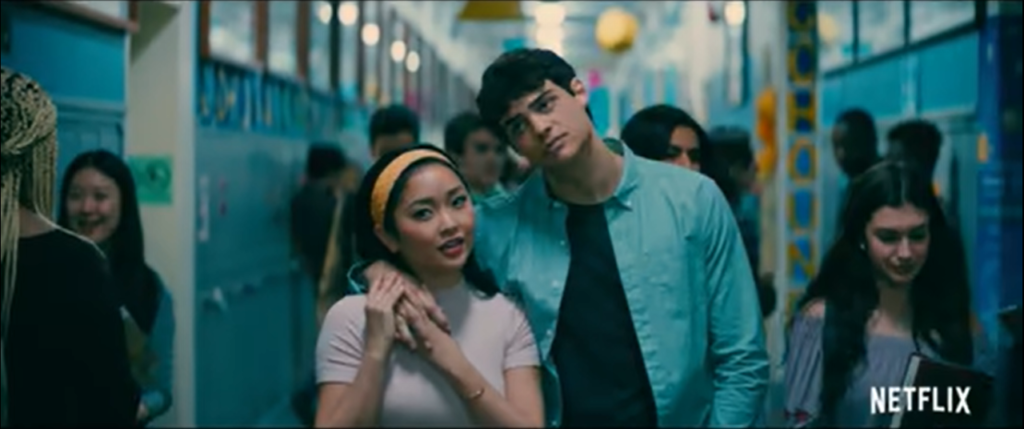About a year ago, BBC Africa released a documentary titled “Sweet Codeine.”
“Sweet Codeine” exposed a growing addiction to drug abuse by Nigerian youth. It was an eyeopener. While “Sweet Codeine” exposed the how, “Nimbe: The Movie” explores the why.
The movie highlights bullying, domestic violence and parental neglect are some of the underlying factors which could lead to drug use and addiction. Drug abuse is an issue which a two-hour movie cannot tackle effectively but director Tope Alake manages to squeeze in these sub-themes.
Chimezie Imo (Kasala) stars as the titular Nimbe – Olurunimbe.
“Nimbe: The Movie” opens on a horrific note. Nimbe’s classmate pulls a prank which annoys him. In response, Nimbe pulls out a gun and points it at his classmate. There is pandemonium and a voice-over tells us, ‘I wasn’t always like this.’ Thereafter, we are taken through a flashback.
Nimbe is the only child of Bayo (Odunlade Adekoya) and Uduak (Toyin Abraham) Oguntade. Bayo and Uduak are cat and mouse. When Nimbe is at home there is no peace – Bayo constantly tells Uduak that she has bad luck. And at school, Nimbe has to deal with bullies such as Benji (Ojewole Timilehin). Benji even nicknames him “Nimbecile.” But against all odds, Nimbe is a good student until he runs into Ralph (Molawa Davis).
As fate would have it, Ralph and Nimbe have something in common. They are both victims of parental neglect. But unlike Nimbe, Ralph has money at his disposal. He’s from a middle class family and his dad believes money can buy love. So rather than attend lectures for his WAEC exams, Ralph hangs out at a joint owned by drug lord – Akin aka AK 49 (Kelechi Udegbe). Ralph lures Nimbe into drug use.
Director Alake also explores the distribution network which is ensuring easy access to the drugs. There is the fear of getting busted by law enforcement agencies like NAFDAC, Police, EFCC. But it does not deter AK from expanding through a northern partner – Abu (Sani Musa Danja). Ralph wants to be a part of it. He wants more responsibility. So, he asks to be a runner but he is advised to keep rolling instead. On the contrary, Nimbe has a skill which will see him find favour with AK. Nimbe’s closeness to AK angers Ralph and causes a strain in the boys’ relationship.
The casts’ performance and setting are clearly not a problem. Imo immerses himself in the character and Davis’s portrayal of the audacious teenager is satisfying. The duo appeal to your emotions. But a better part of the 110 minutes was spent establishing Bayo and Uduak’s relationship.
Ronke Gbede and Yakubu Olawale are responsible for the story and their objective must have been to stress how dysfunctional the Oguntade family is but along the line, the plot became inconsistent. And it opened up a series of plot holes which you cannot but notice. For instance, Uduak’s sister’s wedding that never happened. Nollywood’s fixation with accents when they have no bearing on the story is also worrisome. Granted Alake wanted to portray an inter-tribal marriage, but it was of no consequence to the story. It would seem that Nollywood filmmakers are stereotyping some tribes.
Furthermore, in one of the most memorable scenes in the movie, Uduak pays AK a visit and makes a passionate plea. AK’s reaction is pleasing. We see that he has a conscience after all. He gives a big speech – albeit dramatic – about the God-given intuition of mothers which sees Nimbe re-trace his steps. So, the ensuing events are an amazement. It’s difficult to understand how Uduak – who also describes Nimbe as her reason for living – would move out of her husband’s house without her son. Consequently, despite its good intentions, the movie is marred by a disjointed plot. Notwithstanding, “Nimbe: The Movie” is for here and now.
Directed by: Tope Alake
Cast includes: Odunlade Adekola, Toyin Abraham, Chimezie Imo, Kelechi Udegbe, Sani Musa Danja, Rachael Okonkwo, Ojewole Timilehin



